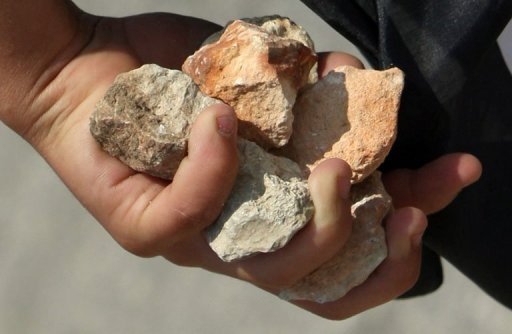 I live in Baltimore County, just a few miles south of the city that is currently in the aftermath of the death of Freddie Gray, who died while he was in police custody a little over 2 weeks ago. Initially there were protests, but then some people have used what happened as an excuse for violence.
The family of Freddie Gray has asked that the violence stop because it does not honor the man whom they loved.
I live in Baltimore County, just a few miles south of the city that is currently in the aftermath of the death of Freddie Gray, who died while he was in police custody a little over 2 weeks ago. Initially there were protests, but then some people have used what happened as an excuse for violence.
The family of Freddie Gray has asked that the violence stop because it does not honor the man whom they loved.
It seems like we have seen this movie several times recently.
Violence leads to more violence.
Pleas for peace emanate from community and government leaders.
Most everyone just wants everything to go back to normal.
But normal means we go back to not being able to have a conversation when something goes wrong, like it did on April 12th.
We have been trained by political campaigns and cable news not to listen to one another, but rather to shout over one another.
When somebody attacks you, you must return it upon them ten fold.
The 'other side' is not just wrong, but also stupid and evil.
Respect, compassion and understanding are signs of weakness. If you're right, you should have the power of conviction that would make it impossible to demonstrate these traits.
Justice, we have been taught, is something you must demand, and if it is not offered, it must be taken.
But even if we are pure in our intentions to seek justice, we are wholly unable to achieve it.
Does that surprise you? What I just said? Let me explain why I believe that:
Jesus said "God blesses those who hunger and thirst for justice, for they will be satisfied." (Matthew 5:6)
Do you notice here that justice is not linked with our own action? The implication we get from Jesus is that God will give justice to those who have longed for it.
It does not say be "justice makers", as in verse 9 where Jesus tells us to be peace makers.
It says we should hunger and thirst for it.
Why is God alone able to provide justice? Very simply because we don't know what is just.
How should the police officers who handled Freddie Gray be responded to? Should they be be punished? Fired? Prosecuted? Imprisoned? What was in their hearts at the moment of the incident? We don't know.
And what of the police officers who have been injured by people who are looting and attempting to riot? If their actions were not just (and they certainly seem not to be), then what response should they receive? What does justice demand for them? We will again run into the problem of every person creating their own answer.
So what we end up with instead of justice is retribution.
We will demand punishment for those who have acted wrongly. Those who cry out that the punishment is too light, will say that the punishment is unjust.
If we give the harshest penalty possible, wouldn't those on the other end of the spectrum likewise scream that the punishment was unjustly harsh?
Both sides will appeal to justice for completely different results.
We cannot give justice. Only God can. And that is why he calls us to hunger and thirst for it.
What can we do in the meantime, while we are awaiting God to set all the wrongs to right, to restore this fallen and broken world?
I would suggest we look at verse 9 where Jesus gives us an action step. "God blesses those who work for peace, for they will be called the children of God."
We can work for peace as we await justice.
Peacemaking, as we already saw why, is not simply getting things 'back to normal'.
Peacemaking is much, much more difficult. It will involve seeking to work on the issues that cause such outbreaks. Why does violence so often occur in our cities? Why is there an undercurrent of frustration that can lead to civil unrest?
This seems like a daunting task. Baltimore is a large city and I am but one person. How can I work for peace?
Perhaps your level of peace making starts with stopping. With not 'picking a side' and using your words on social media to bash the 'other side'.
Perhaps it can start with choosing to pray for everyone involved and not for the people who you prefer.
Perhaps after the unrest has settled, as it eventually will, it will start with reaching out to organizations or missions in areas where there is no peace to invest some time, energy and/or money into the process of peace.
Black lives matter and blue lives matter.
All lives matter to God, and they should matter to us as a result.
So let us hunger and thirst for justice. Let us trust that God will set the wrongs to right. In the meantime, let us work for peace.
_________________________
(If you are interested in reading some excellent material about this topic, I recommend No Future Without Forgiveness by Desmond Tutu, Evil and the Justice of God by N.T. Wright, and Exclusion and Embrace by Miroslav Volf)







